
Foz do Iguaçu: Gateway to Nature’s Majestic Wonders
Foz do Iguaçu, located in the state of Paraná, Brazil, is world-renowned for its awe-inspiring natural beauty and rich cultural blend. The city is best known for the spectacular Iguaçu Falls, one of the largest and most impressive waterfall systems in the world. With over 275 individual falls stretching nearly 3 kilometers, the sight and sound of the cascading water create an unforgettable experience for visitors. The falls can be viewed from both Brazil and Argentina, each offering unique perspectives and breathtaking vistas. Beyond the falls, Foz do Iguaçu is home to the Iguaçu National Park, a UNESCO World Heritage site that boasts lush rainforests, diverse wildlife, and opportunities for outdoor activities such as hiking and bird-watching. The park is a sanctuary for a variety of species, including the elusive jaguar and colorful tropical birds, making it a paradise for nature enthusiasts and photographers. The city's cultural landscape is equally vibrant, with a mix of influences from Brazil, Argentina, and Paraguay. This unique blend is reflected in the local cuisine, which offers a tantalizing array of flavors and dishes. Be sure to visit the Three Borders Landmark, where you can stand at the meeting point of these three countries and explore the fascinating history of the region. Foz do Iguaçu also offers modern amenities and attractions, including the Itaipu Dam, one of the world's largest hydroelectric plants, and the Bird Park, where visitors can get up close to exotic bird species. Whether you're seeking adventure, relaxation, or cultural enrichment, Foz do Iguaçu has something to offer every traveler.
Local tips in Foz do Iguaçu
- Visit both the Brazilian and Argentine sides of Iguaçu Falls for a complete experience.
- Wear comfortable walking shoes and bring a raincoat when visiting the falls.
- Explore the Iguaçu National Park early in the morning to avoid crowds and spot wildlife.
- Try the local cuisine, especially dishes that include the famous Brazilian barbecue.
- Check out the Itaipu Dam for an impressive engineering marvel and guided tours.
- Bring binoculars and a good camera for bird-watching in the Bird Park.
Neighbourhoods in Foz do Iguaçu
Foz do Iguaçu: Gateway to Nature’s Majestic Wonders
Foz do Iguaçu, located in the state of Paraná, Brazil, is world-renowned for its awe-inspiring natural beauty and rich cultural blend. The city is best known for the spectacular Iguaçu Falls, one of the largest and most impressive waterfall systems in the world. With over 275 individual falls stretching nearly 3 kilometers, the sight and sound of the cascading water create an unforgettable experience for visitors. The falls can be viewed from both Brazil and Argentina, each offering unique perspectives and breathtaking vistas. Beyond the falls, Foz do Iguaçu is home to the Iguaçu National Park, a UNESCO World Heritage site that boasts lush rainforests, diverse wildlife, and opportunities for outdoor activities such as hiking and bird-watching. The park is a sanctuary for a variety of species, including the elusive jaguar and colorful tropical birds, making it a paradise for nature enthusiasts and photographers. The city's cultural landscape is equally vibrant, with a mix of influences from Brazil, Argentina, and Paraguay. This unique blend is reflected in the local cuisine, which offers a tantalizing array of flavors and dishes. Be sure to visit the Three Borders Landmark, where you can stand at the meeting point of these three countries and explore the fascinating history of the region. Foz do Iguaçu also offers modern amenities and attractions, including the Itaipu Dam, one of the world's largest hydroelectric plants, and the Bird Park, where visitors can get up close to exotic bird species. Whether you're seeking adventure, relaxation, or cultural enrichment, Foz do Iguaçu has something to offer every traveler.
When is the best time to go to Foz do Iguaçu?
Iconic landmarks you can’t miss
Parque das Aves
Discover Brazil's vibrant avian life at Parque das Aves, a sanctuary for rescued birds near Iguazu Falls, offering an unforgettable immersive experience.
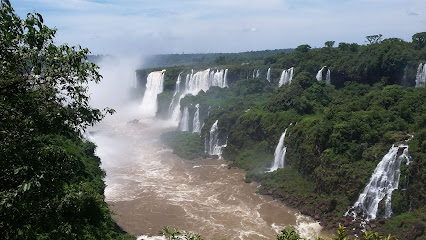
Hito Tres Fronteras
Experience the convergence of Argentina, Brazil, and Paraguay at this tri-border landmark with stunning views and cultural immersion.
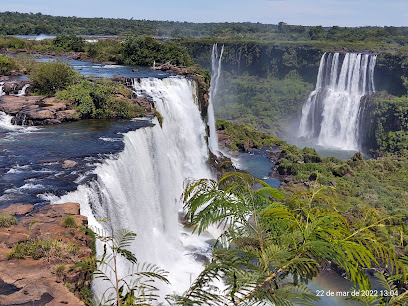
Visitor Center Station
Your journey to the majestic Iguaçu Falls begins here, with information, amenities, and transportation for an unforgettable experience.
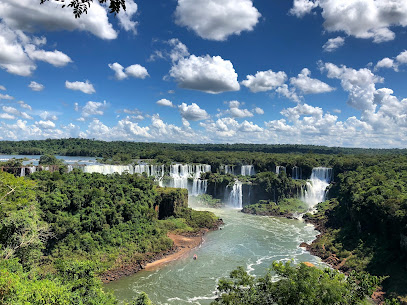
Marco das Três Fronteiras
Discover the tri-border region where Brazil, Argentina, and Paraguay unite. Experience culture, history, and stunning views in Foz do Iguaçu.
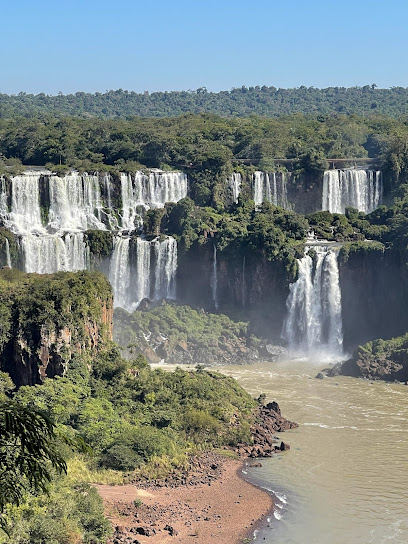
La Aripuca
Explore La Aripuca, an ecological paradise in Puerto Iguazú, where nature and art converge to promote conservation and biodiversity.
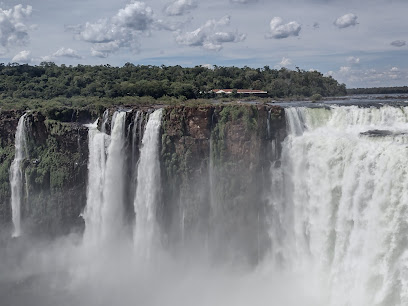
Templo Budista Chen Tien
Discover tranquility and cultural richness at Foz do Iguaçu's Templo Budista Chen Tien, a serene escape with panoramic views.
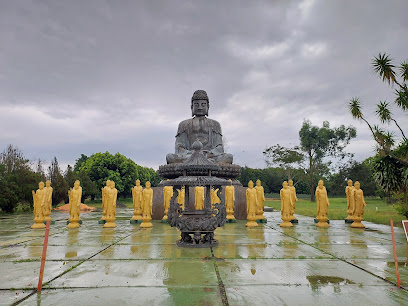
Macuco Safari
Experience an unforgettable adventure at Iguazu Falls: a thrilling jungle jeep ride, nature walk, and boat trip to the base of the falls!
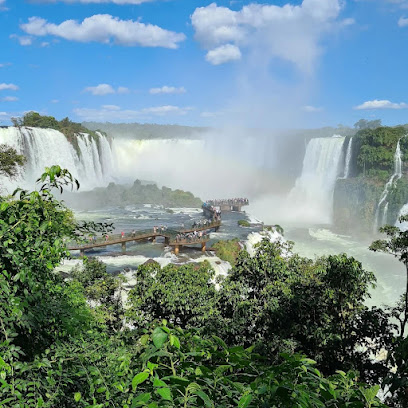
Turismo Itaipu Brasil
Explore the immense Itaipu Dam, a marvel of engineering and a vital source of clean energy between Brazil and Paraguay.
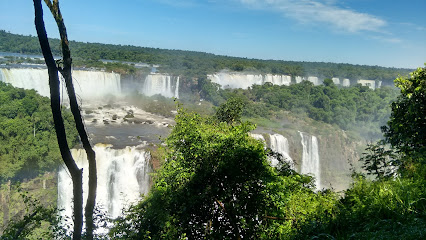
Cataratas do Iguaçu - Brasil
Discover the breathtaking beauty of Cataratas do Iguaçu, a stunning national park with magnificent waterfalls and rich biodiversity.
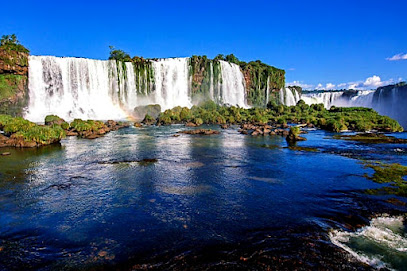
Caminho das Cataratas Brasil
Experience breathtaking panoramic views of the magnificent Iguaçu Falls from this scenic Brazilian trail. A natural wonder awaits!
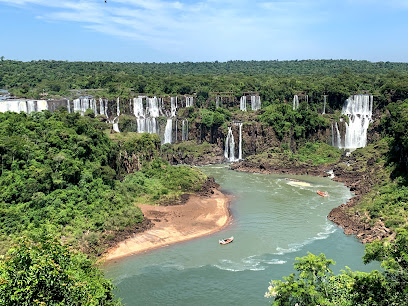
Bourbon Cataratas do Iguaçu Thermas Eco Resort
Experience luxury and adventure at Bourbon Cataratas do Iguaçu Thermas Eco Resort, your gateway to the magnificent Iguaçu Falls and vibrant Foz do Iguaçu.

Mesquita de Foz do Iguaçu Central
Discover Islamic art & culture at Foz do Iguaçu's Mesquita, a serene landmark of faith, tradition, and community in Brazil.
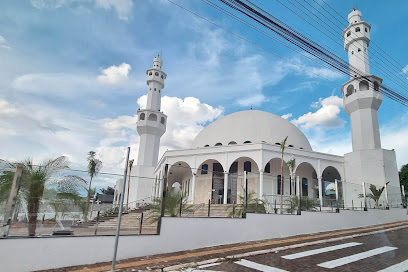
Blue Park Foz
Experience thrilling slides, relaxing thermal waters, and family fun at Blue Park Foz, the ultimate water park destination in Foz do Iguaçu.
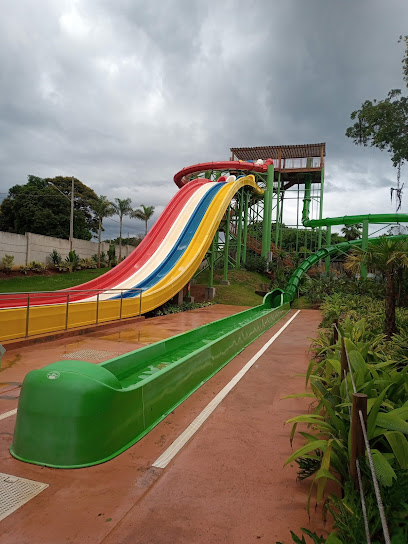
Del Rey Quality Hotel em Foz do Iguaçu
Experience comfort and convenience in the heart of Foz do Iguaçu at Del Rey Quality Hotel, your gateway to exploring the majestic Iguazu Falls.
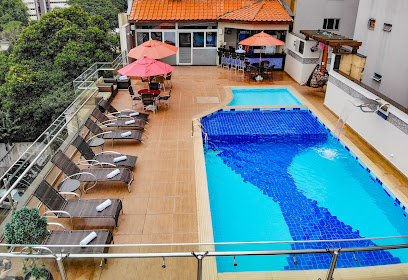
Acquamania Foz
Experience thrilling slides and relaxing pools at Acquamania Foz, the perfect water park for family fun in Foz do Iguaçu, Brazil.
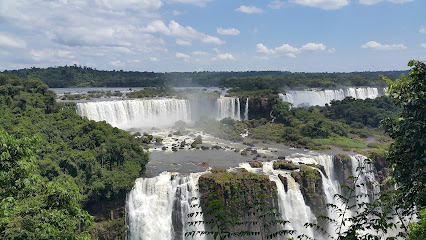
Unmissable attractions to see
Iguazu Falls
Experience the breathtaking beauty of Iguazu Falls, a UNESCO World Heritage Site with stunning waterfalls and lush rainforests in Misiones Province, Argentina.
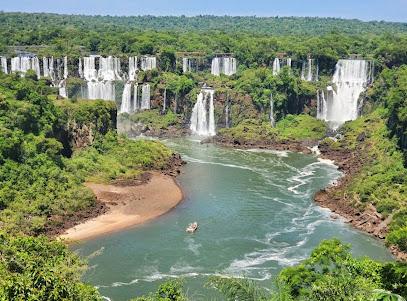
Iguazu Falls
Experience the awe-inspiring power and beauty of Iguazu Falls, a UNESCO World Heritage site on the border of Argentina and Brazil.
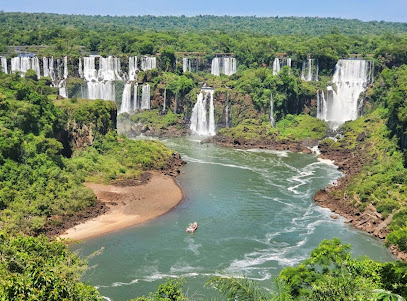
Iguazú National Park
Experience the raw power and breathtaking beauty of Iguazú Falls, a natural wonder in Argentina's subtropical rainforest.
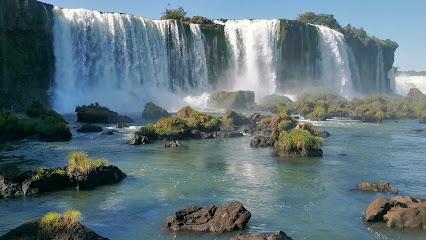
Iguazú National Park
Experience the immense power and breathtaking beauty of Iguazú Falls, surrounded by the lush Argentinian rainforest.
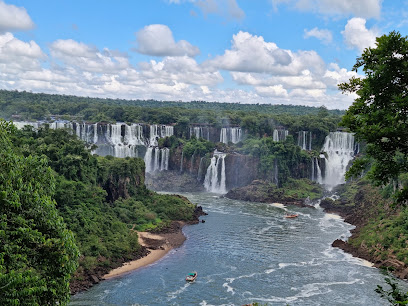
Parque das Aves
Discover the vibrant world of Atlantic Forest birds at Parque das Aves, a sanctuary dedicated to conservation and education near Iguaçu Falls.
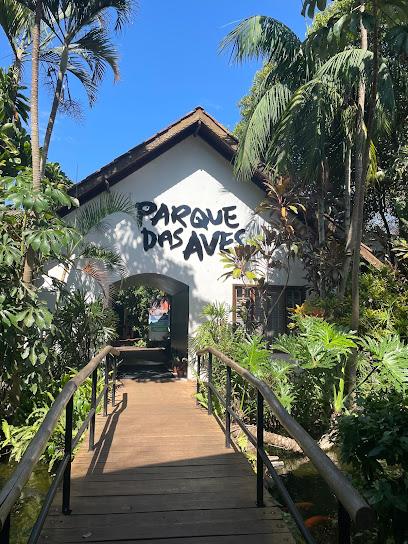
Parque das Aves
Discover a world of vibrant birds at this unique sanctuary, dedicated to the conservation of Brazil's Atlantic Rainforest.
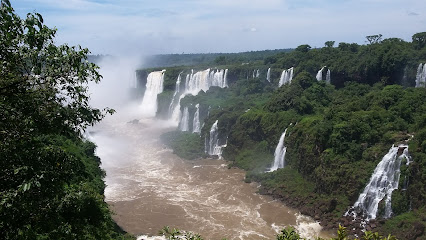
Hito Tres Fronteras (Argentina)
Experience the convergence of Argentina, Brazil, and Paraguay at this unique tri-border landmark with stunning river views.
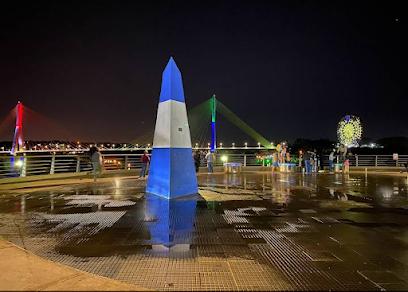
Hito Tres Fronteras
Experience the convergence of Argentina, Brazil, and Paraguay at this unique tri-border landmark with stunning views and cultural experiences.
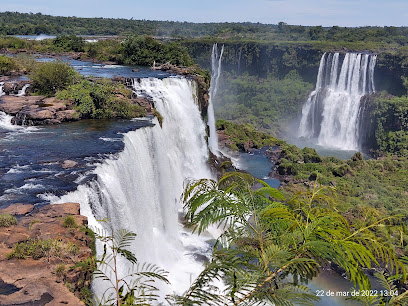
Visitor Center Station
Your gateway to the awe-inspiring Iguaçu Falls, offering essential information and access to one of the world's greatest natural wonders.
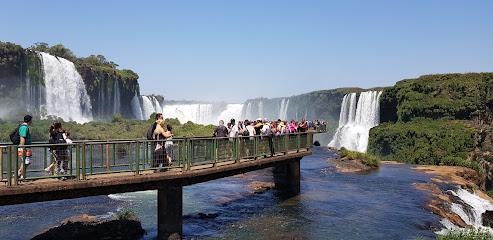
Visitor Center Station
Your gateway to the breathtaking Iguaçu Falls, offering essential information and services for an unforgettable experience in nature.
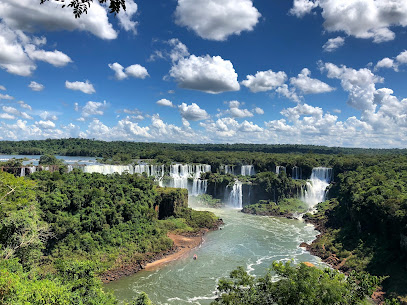
Marco das Três Fronteiras (Brasil)
Experience the tri-border region where Brazil, Argentina, and Paraguay unite in culture and history at this iconic landmark.
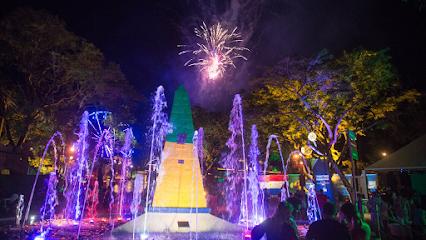
Marco das Três Fronteiras
Witness the meeting of Brazil, Argentina, and Paraguay at this iconic landmark with cultural shows, dining, and stunning views.
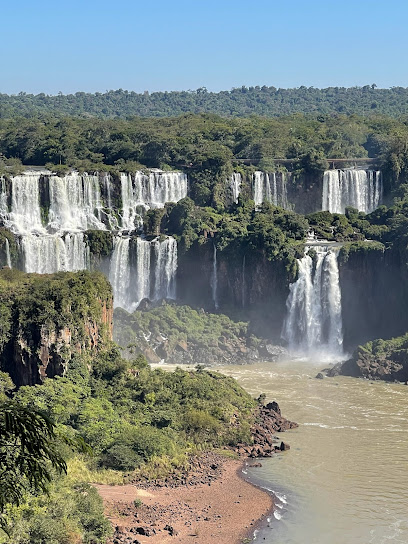
La Aripuca
Discover La Aripuca in Puerto Iguazú: A giant wooden structure promoting environmental awareness and Guarani culture.
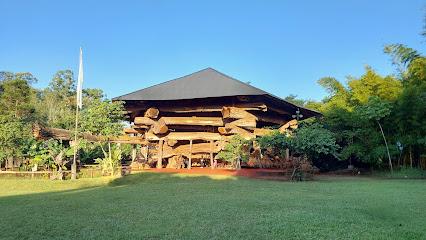
Iguaçu National Park
Experience the Brazilian side of Iguaçu Falls: a UNESCO-listed natural wonder with stunning views, diverse wildlife, and unforgettable adventures.
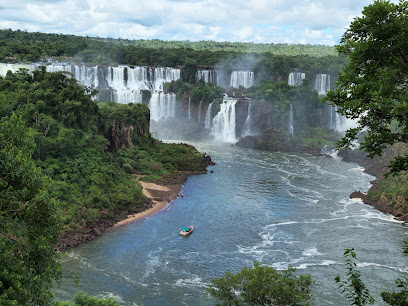
Dreams Park Show
Experience art, culture, and entertainment at Dreams Park Show in Foz do Iguaçu, featuring wax figures, dinosaurs, world landmarks, and more!

Essential places to dine
Rafain Churrascaria Show
Savor authentic Brazilian barbecue at Rafain Churrascaria Show while enjoying vibrant cultural performances in Foz do Iguaçu.
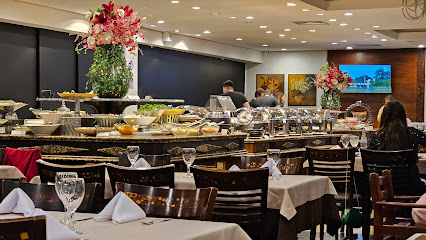
Rafain Chopp
Experience authentic Brazilian flavors at Rafain Chopp in Foz do Iguaçu - where every meal is a celebration of local cuisine.
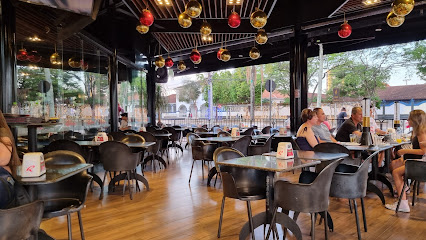
Vó Bertila
Discover authentic Italian cuisine at Vó Bertila in Foz do Iguaçu - home of delicious pizzas and welcoming ambiance.
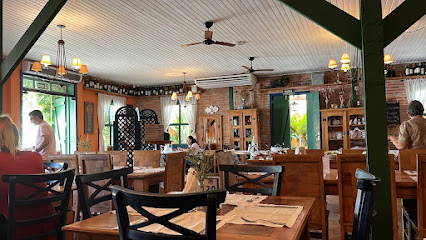
Bendito - Bar e Restaurante
Experience the rich flavors of Brazil at Bendito - Bar e Restaurante in Foz do Iguaçu, where culinary excellence meets vibrant culture.
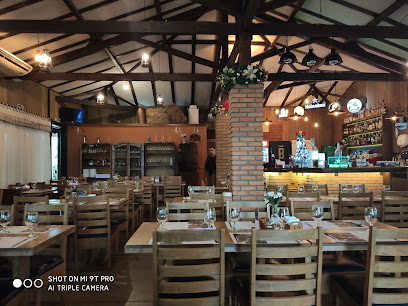
Bufalo Branco BBQ
Experience authentic Brazilian barbecue at Bufalo Branco BBQ in Foz do Iguaçu - a culinary gem serving succulent meats and vibrant flavors.
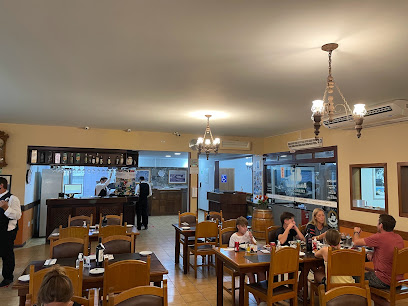
Castelo Alemão
Discover the rich flavors of Brazil at Castelo Alemão - a buffet restaurant offering delicious tapas-style dishes in Campos do Iguaçu.
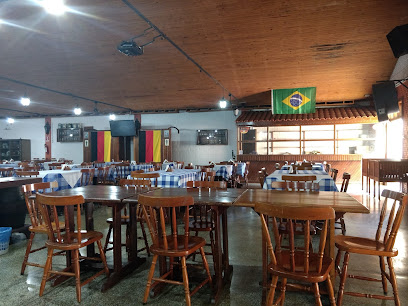
Castelo Libanês
Experience authentic Middle Eastern cuisine at Castelo Libanês in Foz do Iguaçu - A must-visit culinary destination!
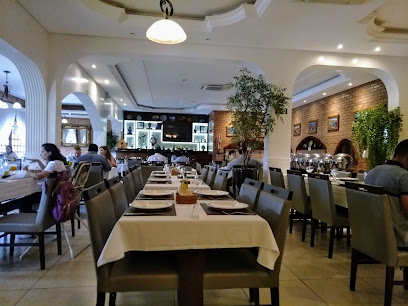
La Mafia Tratoria
Discover authentic Italian cuisine at La Mafia Trattoria in Foz do Iguaçu - where every meal feels like a celebration.
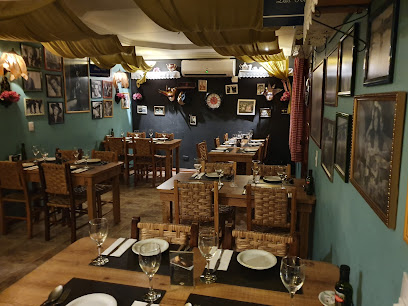
Madero Steak House Foz do Iguaçu
Discover exquisite American cuisine at Madero Steak House in Foz do Iguaçu—where gourmet burgers meet a welcoming atmosphere.
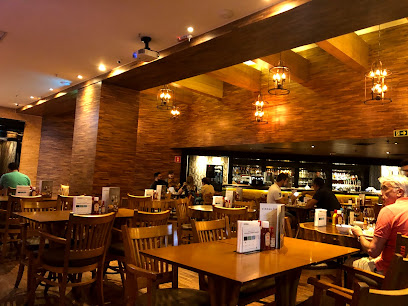
ParkFoz Steakhouse
Experience authentic Brazilian cuisine at ParkFoz Steakhouse in Foz do Iguaçu – where great food meets warm hospitality.
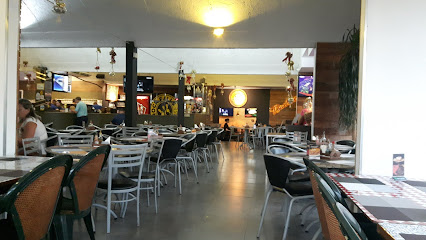
Empório com Arte
Discover Empório com Arte in Foz do Iguaçu: A perfect blend of culinary delights and local art in a cozy bistro atmosphere.
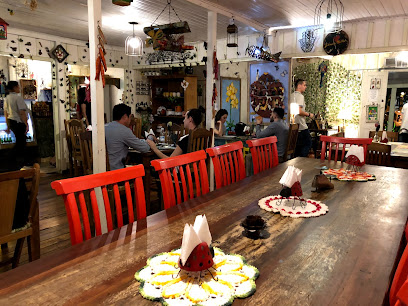
Seletto Restaurante
Experience the best of Brazilian cuisine at Seletto Restaurante in Foz do Iguaçu with an exquisite buffet that delights every palate.
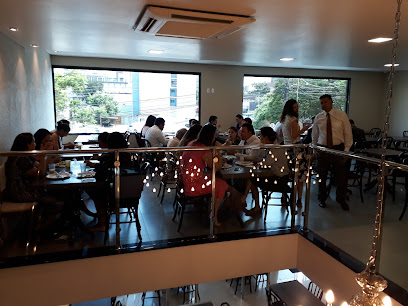
Sushi Hokkai
Discover the essence of Japan at Sushi Hokkai in Foz do Iguaçu—where tradition meets flavor in every bite.
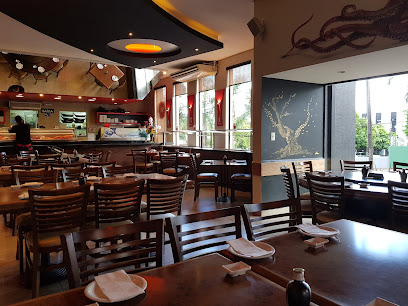
Bona - Gastronomia Italiana
Discover Bona - Gastronomia Italiana: where authentic Italian flavors meet exceptional dining in Foz do Iguaçu.
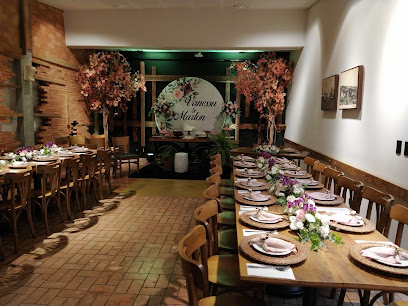
TAJ Foz
Experience exquisite Japanese cuisine in a vibrant pub setting at TAJ Foz – where flavors meet fun in Foz do Iguaçu.
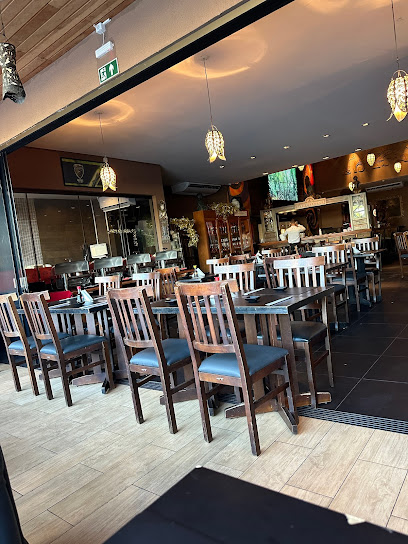
Markets, malls and hidden boutiques
Duty Free Shop Puerto Iguazu
Discover unbeatable deals at Duty Free Shop Puerto Iguazu, where shopping meets the charm of Argentina’s breathtaking landscapes.
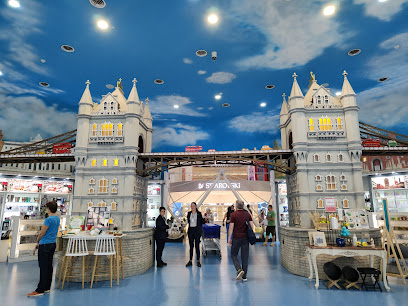
Shopping Catuaí Palladium
Discover shopping, dining, and entertainment at Shopping Catuaí Palladium, Foz do Iguaçu's premier shopping destination.
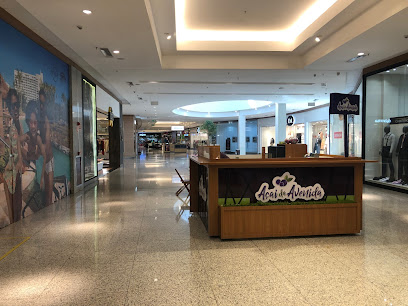
Cataratas JL Shopping
Discover a shoppers' haven at Cataratas JL Shopping in Foz do Iguaçu, featuring diverse shops, delightful dining, and family-friendly entertainment.
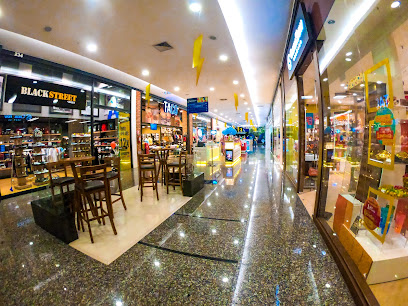
Albayan Doceria Arabic
Discover the sweet side of Foz do Iguaçu at Albayan Doceria, where Arabic confectionery meets local charm in a delightful gift shop experience.
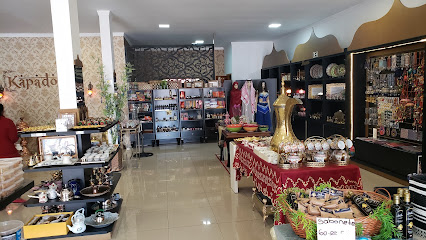
AgroShopping - Loja autorizada STIHL
Discover AgroShopping in Foz do Iguaçu for premium pet supplies, farming essentials, and quality tools from an authorized STIHL dealer.
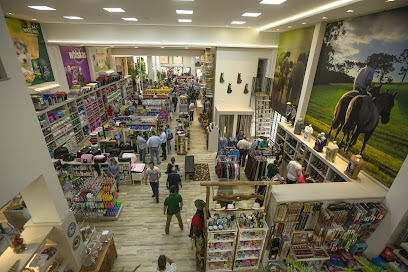
Cellshop Duty Free
Discover unbeatable deals on luxury goods and local treasures at Cellshop Duty Free, the ultimate shopping destination in Foz do Iguaçu.
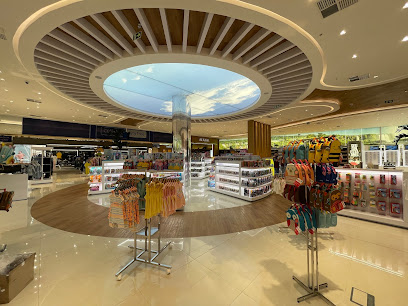
Centro Executivo Mercosul
Explore Centro Executivo Mercosul: A vibrant shopping mall in Foz do Iguaçu featuring diverse shops, delicious dining, and exciting entertainment.
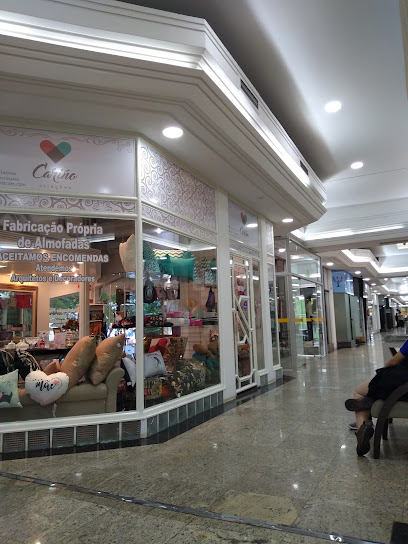
Kapadokya
Explore Kapadokya in Foz do Iguaçu for unique gifts, delightful candies, and collectibles that showcase local culture and artistry.
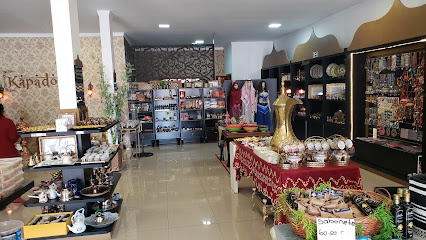
Liberty Duty Free
Experience the ultimate duty-free shopping destination in Foz do Iguaçu, featuring unbeatable prices on luxury goods and souvenirs.
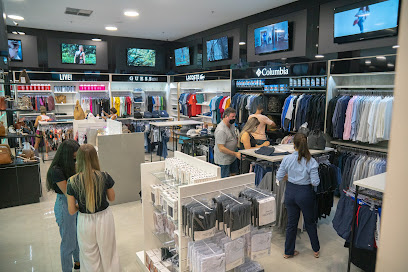
Paris Duty Free
Discover luxury shopping at Paris Duty Free in Foz do Iguaçu, offering unbeatable prices on top international brands.
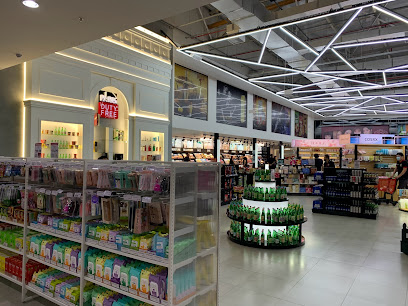
Casa Viva Móveis
Discover stylish and comfortable sofas at Casa Viva Móveis, a premier furniture store in Foz do Iguaçu, blending quality with local charm.
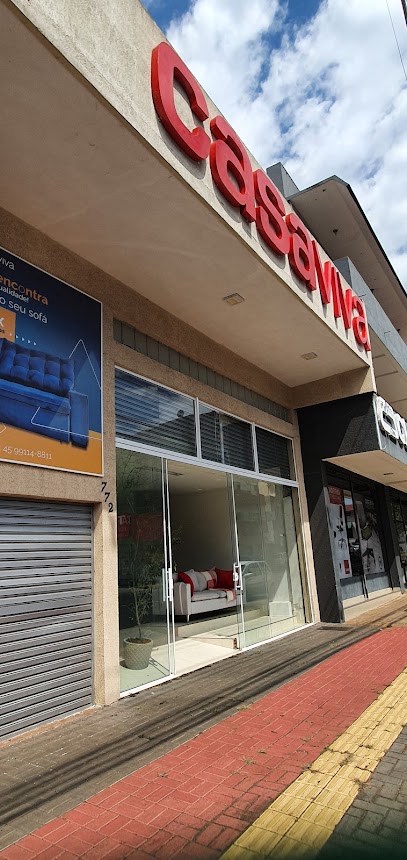
Artesanato Iguassu
Explore Artesanato Iguassu - A haven for unique handmade crafts that capture the essence of Brazilian culture in the heart of Foz do Iguaçu.

Modulinea Móveis e Decorações
Explore Modulinea Móveis e Decorações for stunning furniture and home goods that capture the essence of Brazilian design in Foz do Iguaçu.
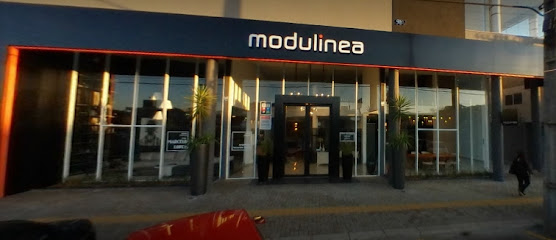
Mundo dos Fogos World Fireworks
Explore Mundo dos Fogos in Foz do Iguaçu for an unforgettable fireworks shopping experience, featuring a diverse selection and expert guidance.
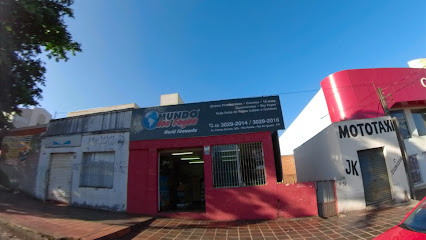
Ideal Furniture & Design
Explore Ideal Furniture & Design in Foz do Iguaçu for stylish and quality home furnishings, from chic sofas to practical kitchen and outdoor pieces.

Essential bars & hidden hideouts
Capitão Bar - Restaurante Foz
Experience the vibrant energy and delicious flavors at Capitão Bar - Restaurante Foz, where every meal is a celebration of local culture.
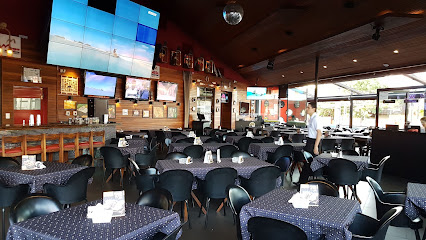
Rafain Chopp
Discover the vibrant flavors of Brazil at Rafain Chopp, a lively bar and restaurant in Foz do Iguaçu, perfect for food lovers and social gatherings.
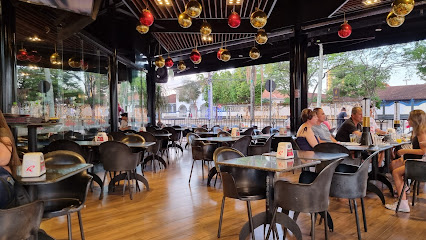
Bendito - Bar e Restaurante
Experience authentic Brazilian flavors and vibrant nightlife at Bendito - Bar e Restaurante in the heart of Foz do Iguaçu.
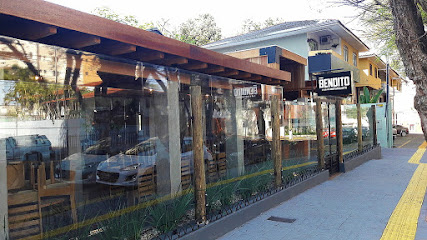
Zeppelin Old Bar
Discover the lively spirit of Foz do Iguaçu at Zeppelin Old Bar, where live music meets delicious tapas and vibrant nightlife.
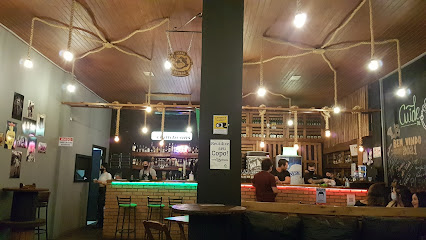
Hell's Dogs Motorcycle Bar
Discover Hell's Dogs Motorcycle Bar in Foz do Iguaçu: A unique cocktail bar celebrating biker culture with a vibrant atmosphere and delicious drinks.
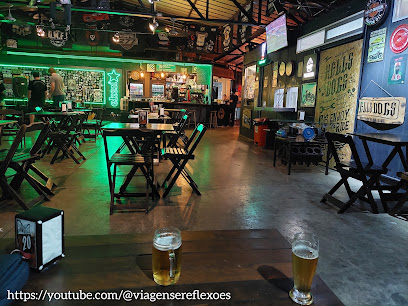
Sudacas Bar
Experience the vibrant nightlife at Sudacas Bar in Foz do Iguaçu, a must-visit destination for drinks, music, and local culture.
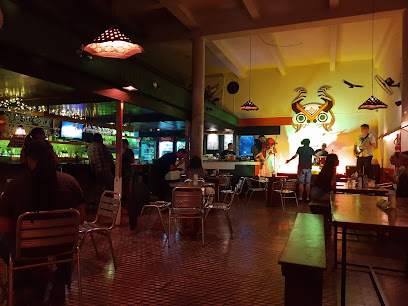
Ibiza deck bar
Discover the lively Ibiza Deck Bar in Foz do Iguaçu, where exquisite cocktails meet an energetic atmosphere perfect for nightlife enthusiasts.
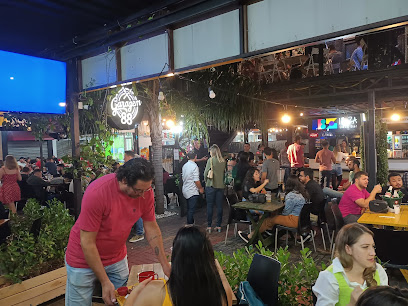
Santo Gato Bar
Experience the vibrant nightlife at Santo Gato Bar in Foz do Iguaçu, where great drinks and lively entertainment await you.
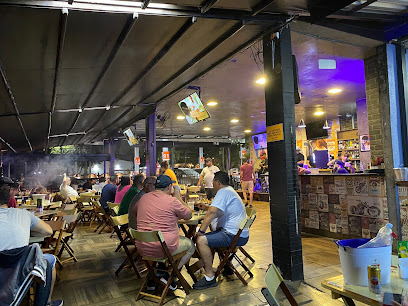
Cartório Bar Foz - Petiscos, Cerveja, Chopp, Happy Hour
Discover Cartório Bar Foz - A lively bar in Foz do Iguaçu serving delicious petiscos and refreshing beers in a vibrant atmosphere.
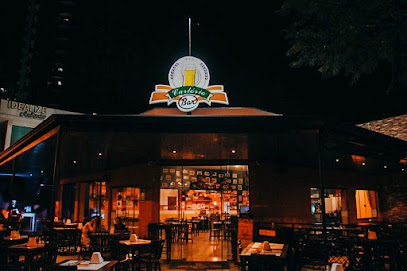
Europa Bar
Discover the lively nightlife and exquisite sushi experience at Europa Bar, a top destination in Foz do Iguaçu for unforgettable evenings.
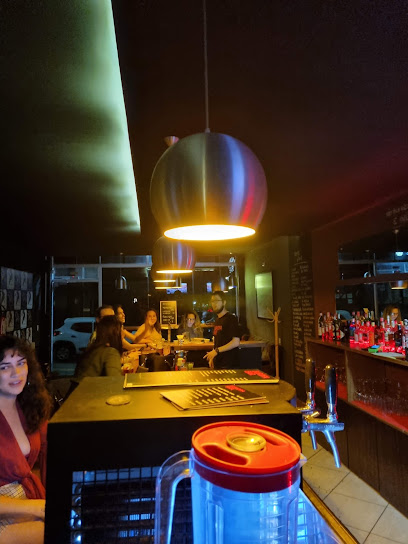
SO Lounge
Discover the energetic vibe of SO Lounge, where delightful drinks and vibrant nightlife meet in Foz do Iguaçu's heart.
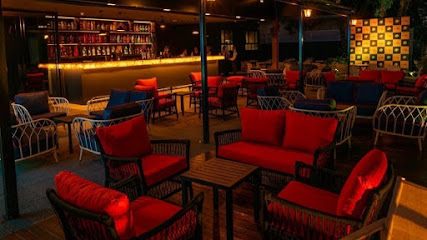
Europa Bar Forum
Discover the best cocktails and sushi in Foz do Iguaçu at Europa Bar Forum, a vibrant hotspot for food and drink enthusiasts.
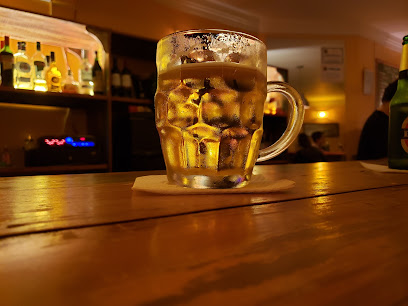
Don Faustino Bar & Petiscaria
Immerse yourself in the vibrant nightlife of Foz do Iguaçu at Don Faustino Bar & Petiscaria, where delicious petiscos and refreshing drinks await.
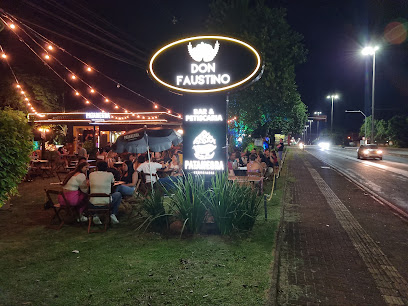
Folks Pub Sertanejo - Foz do Iguaçu
Dive into the vibrant nightlife at Folks Pub Sertanejo, where Sertanejo music and lively dancing create an unforgettable experience in Foz do Iguaçu.
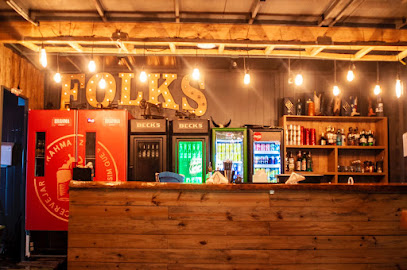
Janela Bar Foz do Iguaçu
Discover the vibrant nightlife of Foz do Iguaçu at Janela Bar, where great drinks and an inviting atmosphere await.
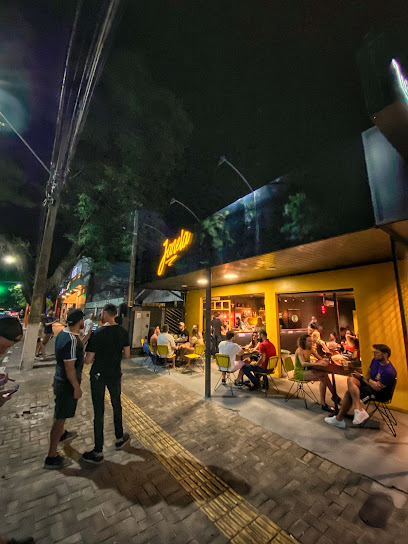
Local Phrases
-
- HelloOlá
[oh-lah] - GoodbyeTchau
[chow] - YesSim
[seem] - NoNão
[now] - Please/You're welcomePor favor/De nada
[por fah-vohr/de nah-dah] - Thank youObrigado(a)
[oh-bree-gah-doh(ah)] - Excuse me/SorryCom licença/Desculpe
[cohm lee-sen-sah/dehs-kool-peh] - How are you?Como você está?
[koh-moh voh-seh es-tah] - Fine. And you?Bem. E você?
[behn/eh voh-seh] - Do you speak English?Você fala inglês?
[voh-seh fah-lah een-glehss] - I don't understandEu não entendo
[eh-oo now en-ten-doh]
- HelloOlá
-
- I'd like to see the menu, pleaseEu gostaria de ver o cardápio, por favor
[eh-oo goh-stah-ree-ah deh vehr ooh cahr-dah-pyoo, por fah-vohr] - I don't eat meatEu não como carne
[eh-oo now koh-moh kahr-neh] - Cheers!Saúde!
[sah-oo-deh] - I would like to pay, pleaseEu gostaria de pagar, por favor
[eh-oo goh-stah-ree-ah deh pah-gahr, por fah-vohr]
- I'd like to see the menu, pleaseEu gostaria de ver o cardápio, por favor
-
- Help!Socorro!
[soh-koh-roh] - Go away!Vá embora!
[vah ehm-boh-rah] - Call the Police!Chame a polícia!
[chah-meh ah poh-lee-see-ah] - Call a doctor!Chame um médico!
[chah-meh oom meh-dee-koh] - I'm lostEstou perdido(a)
[eh-stoh pehr-dee-doh(ah)] - I'm illEstou doente
[eh-stoh doo-en-teh]
- Help!Socorro!
-
- I'd like to buy...Eu gostaria de comprar...
[eh-oo goh-stah-ree-ah deh kohm-prahr] - I'm just lookingEstou só olhando
[eh-stoh soh oh-lahn-doh] - How much is it?Quanto custa?
[kwahn-too coos-tah] - That's too expensiveIsso é muito caro
[ee-soh eh moo-ee-toh kah-roo] - Can you lower the price?Você pode baixar o preço?
[voh-seh poh-deh bah-ee-shahr ooh preh-soh]
- I'd like to buy...Eu gostaria de comprar...
-
- What time is it?Que horas são?
[keh oh-rahs sah-oo] - It's one o'clockÉ uma hora
[eh oo-mah oh-rah] - Half past (10)Meio-dia e meia
[may-oh-jah eh may-ah] - MorningManhã
[mahn-yah] - AfternoonTarde
[tahr-deh] - EveningNoite
[noy-chi] - YesterdayOntem
[ohn-tehn] - TodayHoje
[oh-zjee] - TomorrowAmanhã
[ah-mahn-yah] - 1Um
[oom] - 2Dois
[doh-ees] - 3Três
[trehss] - 4Quatro
[kwah-troh] - 5Cinco
[seeng-koh] - 6Seis
[sayss] - 7Sete
[seh-teh] - 8Oito
[oy-toh] - 9Nove
[noh-veh] - 10Dez
[dehss]
- What time is it?Que horas são?
-
- Where's a/the...?Onde fica o/a...?
[ohn-deh fee-kah ooh/ah] - What's the address?Qual é o endereço?
[kwahl eh ooh ehn-deh-reh-soh] - Can you show me (on the map)?Você pode me mostrar (no mapa)?
[voh-seh poh-deh meh moh-strahr (noh mah-pah)] - When's the next (bus)?Quando é o próximo (ônibus)?
[kwahn-doh eh ooh proh-kssee-moh (ohn-ee-boos)] - A ticket (to ....)Um bilhete (para ...)
[oom bee-lyeh-teh (pah-rah)]
- Where's a/the...?Onde fica o/a...?
History of Foz do Iguaçu
-
Long before the arrival of Europeans, the region now known as Foz do Iguaçu was inhabited by the Guarani people. They lived in harmony with nature, utilizing the abundant resources of the Iguaçu River and its surroundings. The Guarani's deep spiritual connection to the land is reflected in their myths and legends, particularly those involving the Iguaçu Falls, which they considered sacred.
-
In the 16th century, Spanish explorers, including Álvar Núñez Cabeza de Vaca, were among the first Europeans to encounter the Iguaçu Falls. His 1541 expedition brought back tales of the magnificent waterfalls, igniting interest in the region. Portuguese explorers soon followed, leading to a period of rivalry and conflict between the Spanish and Portuguese for control over the area.
-
In the 17th and 18th centuries, Jesuit missionaries established a series of missions in the region, aiming to convert the Indigenous Guarani people to Christianity. These missions became centers of education and culture, significantly impacting the local population. The Jesuits introduced new agricultural practices and crafts, leaving a lasting legacy on the region's cultural landscape.
-
The region of Foz do Iguaçu lies at the confluence of Brazil, Argentina, and Paraguay, forming what is known as the Triple Frontier. This strategic location has historically made it a site of commerce and cultural exchange. The borders were formally established in the late 19th century, and the area has since evolved into a unique melting pot of cultures and traditions from all three countries.
-
Foz do Iguaçu was officially founded on June 10, 1914. Its establishment marked the beginning of a new era of development and modernization. The city's growth was fueled by its strategic location and the increasing popularity of the Iguaçu Falls as a tourist destination. Infrastructure improvements, such as roads and railways, were made to accommodate the influx of visitors.
-
One of the most significant events in the history of Foz do Iguaçu was the construction of the Itaipu Dam, which began in 1975 and was completed in 1984. This colossal hydroelectric project, a joint venture between Brazil and Paraguay, is one of the largest dams in the world. Itaipu Dam has played a crucial role in the region's economic development, providing electricity and fostering industrial growth.
-
In 1986, the Iguaçu National Park, home to the Iguaçu Falls, was designated a UNESCO World Heritage Site. This recognition highlighted the ecological and cultural significance of the area. The park is a biodiversity hotspot, protecting numerous species of flora and fauna. It has also become a major center for ecotourism, attracting millions of visitors annually.
-
Today, Foz do Iguaçu is a vibrant city that seamlessly blends its rich history with modern amenities. It is a hub for tourism, drawing visitors from around the globe to witness the breathtaking Iguaçu Falls and explore the diverse cultural experiences offered by the Triple Frontier region. The city's multicultural heritage is evident in its cuisine, festivals, and daily life.
Foz do Iguaçu Essentials
-
Foz do Iguaçu is well-connected by air, road, and bus. The nearest airport is Foz do Iguaçu International Airport (IGU), which has regular flights from major Brazilian cities like São Paulo and Rio de Janeiro, as well as international flights from countries like Argentina and Paraguay. From the airport, you can take a taxi or shuttle service to your accommodation. The city is also accessible by long-distance buses from various parts of Brazil and neighboring countries. If you're driving, major highways like BR-277 connect Foz do Iguaçu to other regions.
-
Foz do Iguaçu has a reliable public transportation system, including buses that cover most tourist attractions and city areas. Taxis and ride-sharing services like Uber are also readily available. For a more flexible option, consider renting a car, especially if you plan to visit attractions outside the city center like Itaipu Dam or the Argentine side of the Iguazu Falls. Bicycles are another eco-friendly way to explore the area, with bike rentals available in various locations.
-
The official currency in Brazil is the Brazilian Real (BRL). Credit and debit cards are widely accepted in hotels, restaurants, and shops. However, it's advisable to carry some cash for small purchases, especially in local markets or rural areas. ATMs are available throughout the city, including at the airport and shopping centers. Currency exchange services can be found at the airport, banks, and exchange bureaus in the city.
-
Foz do Iguaçu is generally safe for tourists, but like any popular destination, it’s important to stay vigilant. Avoid walking alone at night in unfamiliar areas and be cautious in crowded places. Some neighborhoods, such as Porto Meira, have higher crime rates, so exercise extra caution if you need to visit these areas. Keep your belongings secure, and avoid displaying valuables openly. Stick to well-lit and busy streets, especially after dark.
-
In case of emergency, dial 190 for the police and 192 for medical emergencies. The city has several hospitals and clinics, including Hospital Municipal Padre Germano Lauck and Hospital Costa Cavalcanti. It's advisable to have travel insurance that covers medical emergencies. Pharmacies are widespread and can provide over-the-counter medications. For lost passports or other consular issues, visit your nearest consulate or embassy.
-
Fashion: Do wear comfortable and weather-appropriate clothing, especially if visiting the Falls. Avoid overly revealing clothing in religious or conservative areas. Religion: Do respect local customs and traditions. When visiting religious sites, dress modestly and follow any specific rules. Public Transport: Do be courteous and offer your seat to elderly passengers. Don't eat or drink on public transport. Greetings: Do greet people with a handshake. A friendly 'Bom dia' (Good morning) or 'Boa tarde' (Good afternoon) is always appreciated. Eating & Drinking: Do try local dishes and accept food offerings graciously. Don't refuse hospitality, as it may be considered impolite.
-
To experience Foz do Iguaçu like a local, visit the Mercado Municipal for fresh produce and local goods. Engage with locals, who are often friendly and eager to share their knowledge about the area. Don't miss the opportunity to explore the lesser-known trails around the Iguazu Falls for a more intimate experience. Additionally, attending a local churrasco (barbecue) is a must to fully immerse yourself in Brazilian culture.
Trending Landmark in Foz do Iguaçu
-
Parque das Aves
-
Hito Tres Fronteras
-
Visitor Center Station
-
Marco das Três Fronteiras
-
La Aripuca
-
Templo Budista Chen Tien
-
Macuco Safari
-
Turismo Itaipu Brasil
-
Cataratas do Iguaçu - Brasil
-
Caminho das Cataratas Brasil
-
Bourbon Cataratas do Iguaçu Thermas Eco Resort
-
Mesquita de Foz do Iguaçu Central
-
Blue Park Foz
-
Del Rey Quality Hotel em Foz do Iguaçu
-
Acquamania Foz
Nearby Cities to Foz do Iguaçu
-
Things To Do in Puerto Iguazú
-
Things To Do in Hernandarias
-
Things To Do in Villarrica
-
Things To Do in Encarnacion
-
Things To Do in Carmen del Parana
-
Things To Do in San Bernardino
-
Things To Do in Ypacarai
-
Things To Do in Aregua
-
Things To Do in Asuncion
-
Things To Do in Florianópolis
-
Things To Do in Tacuarembó
-
Things To Do in São Paulo
-
Things To Do in Fray Bentos
-
Things To Do in Rosario
-
Things To Do in Colonia del Sacramento













